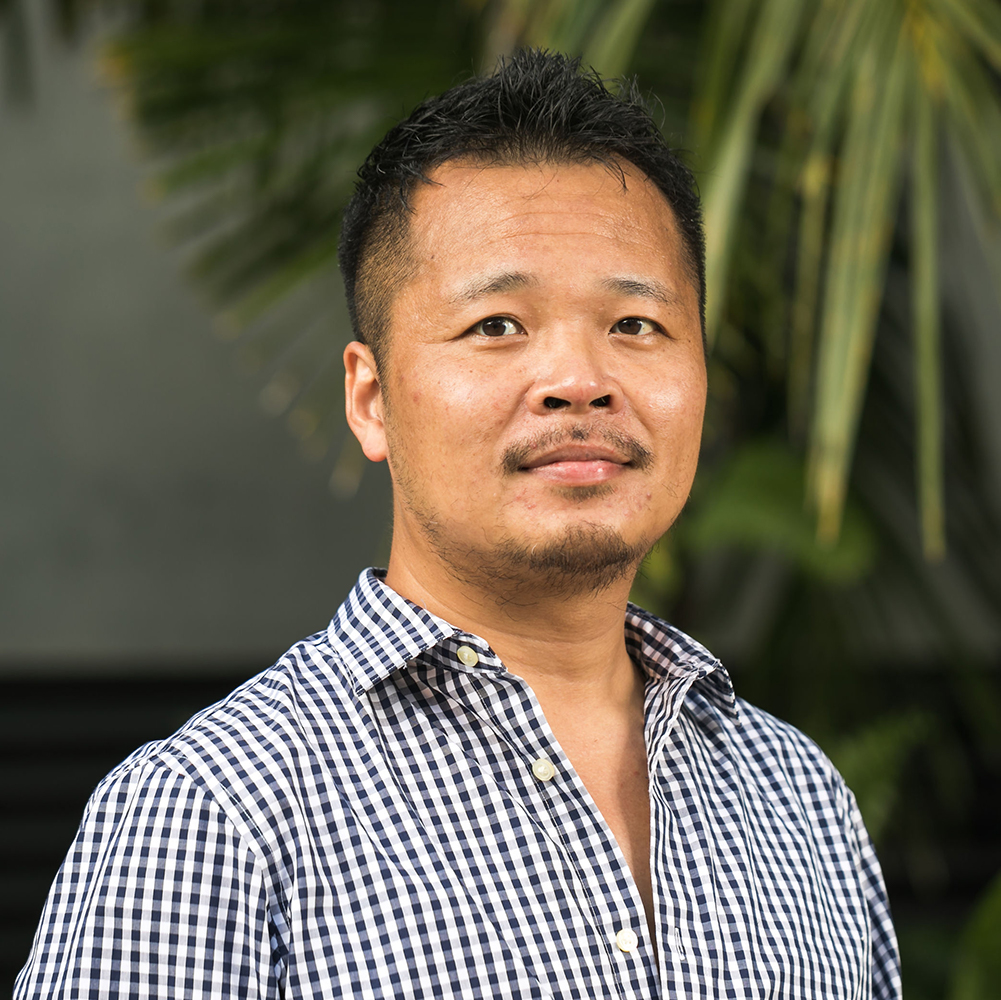Lei Guo, associate professor of physics, wants to know how the world works.
His interest in science began at a young age. His father was an electrical engineer who worked with Guo on projects like the six-month construction of a television from scratch using thousands of capacitors and resistors, and his mother was a chemistry teacher who taught Guo in junior high school. He gravitated towards physics, seeing it as the most fundamental of the natural sciences.

As a graduate student at Vanderbilt University, Guo worked at the Thomas Jefferson National Accelerator Facility, a US National Laboratory commonly referred to as Jefferson Lab, where he became friends with several FIU Ph.D. graduates. He considers himself fortunate to have become a Panther, which he did in 2010. “I got lucky. It isn’t easy to find a university located in a big city that’s hiring nuclear physics faculty with a strong graduate program.”
Guo’s research field is in nuclear physics, using electromagnetic probes. Guo’s main projects involve experiments at Jefferson Lab, shooting electron and photon beams onto nuclear targets, which produces all kinds of particles. “By detecting those particles – what they are, where and how fast they’re going – we hope to figure out the why and how. Our end goal is to have a better understanding of the strong interaction that hold the building blocks of the visible universe together, which right now is the least understood among the fundamental forces.”
He’s also excited to work on physics to be explored by the Electron-Ion Collider (EIC), a unique physics research facility recently approved by the Department of Energy to be built at the prestigious Brookhaven National Laboratory. The EIC will look inside the nucleus and its protons and neutrons. The Physics Department at FIU is scheduled to organize and host the first EIC user group meeting after this approval, although the date is now tentative due to the recent global health pandemic.
Guo became interested in joining the FIU ADVANCE team after attending training sessions. He had already been interested in the issues relating to underrepresented groups in STEM, and in issues relating to Asians and Asian-Americans as well. “I’ve found the team to be very supportive and understanding of the topics I raise,” he says. “I’m hoping to help create a louder and stronger voice for the Asian community.”
Guo often partners with other FIU ADVANCE team members to host STRIDE hiring workshops for faculty, which teach best practices for faculty hiring and for tenure and promotion decisions. “The most important thing is to listen to and bring participants into the conversation we’re having, and to make sure they feel they can be a part of positive change.”
He also frequently serves as a faculty actor in the Bystander Leadership Program. He believes the impact of Bystander lies in the way it highlights issues participants might not have paid attention to before, such as implicit bias. “Additionally, we offer participants various tools they can use when situations arise. We often don’t know what to do in certain situations, so it’s nice to have case studies where everyone can practice their responses.”
His goal is to make sure everyone who attends leaves with the knowledge that, although nobody is perfect, everyone can intervene and contribute to making FIU a diverse and welcoming place.
